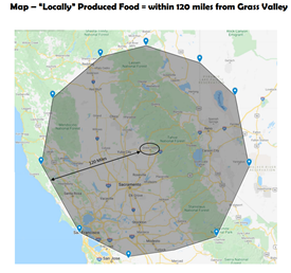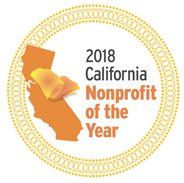Good Food for All
Interfaith Food Ministry believes that HOW we go about reaching our goals is just as important as WHY we do it!
We continue to increase the amount of locally grown food we buy. IFM's support of local farmers and small businesses increases our ability to offer fresh nutritious food to our clients, which in turn benefits both the health and economy of our community.
We also have the fundraising side of the program. Donors can designate their donation for the Good Food for All program, and IFM commits to first matching that donation from other sources (grants, fundraisers, etc.) and then earmarking ALL those funds towards local purchases.
These fundraising efforts and our goal of purchasing more locally produced food are collectively known as the Good Food for All program.
We continue to increase the amount of locally grown food we buy. IFM's support of local farmers and small businesses increases our ability to offer fresh nutritious food to our clients, which in turn benefits both the health and economy of our community.
We also have the fundraising side of the program. Donors can designate their donation for the Good Food for All program, and IFM commits to first matching that donation from other sources (grants, fundraisers, etc.) and then earmarking ALL those funds towards local purchases.
These fundraising efforts and our goal of purchasing more locally produced food are collectively known as the Good Food for All program.
|
What is considered “local”? Within 120 miles of Grass Valley. MAP. Why is it good to purchase local food? There are many reasons why, but here are three of the top reasons from IFM’s perspective: |
- Nutrition content is higher in fresh foods! A tomato that is eaten within a few days of being harvested has more nutritional content than a tomato being harvested and then traveling over long distances before it lands on someone’s plate. A more nutritious diet leads to healthier bodies and minds and ultimately healthier communities and increased food security.
- Speaking of traveling long distances, our carbon footprint and impact on the environment decreases as we decrease how far our food travels from production to consumption.
- There is an economic multiplier effect when IFM chooses to spend its dollars locally. In June 2021, Phil Alonso, IFM’s Executive Director, had this article published in The Union making the case for purchasing from local food producers.
| good_food_for_all.pdf |
What types of local food items does IFM procure?
Primarily fresh vegetables (lettuce, tomatoes, peppers, squash, onion, kale, garlic, potatoes, carrots), but also fruit (kiwi, mandarins, oranges, pears, apples), tortillas, salsa, and flour.




